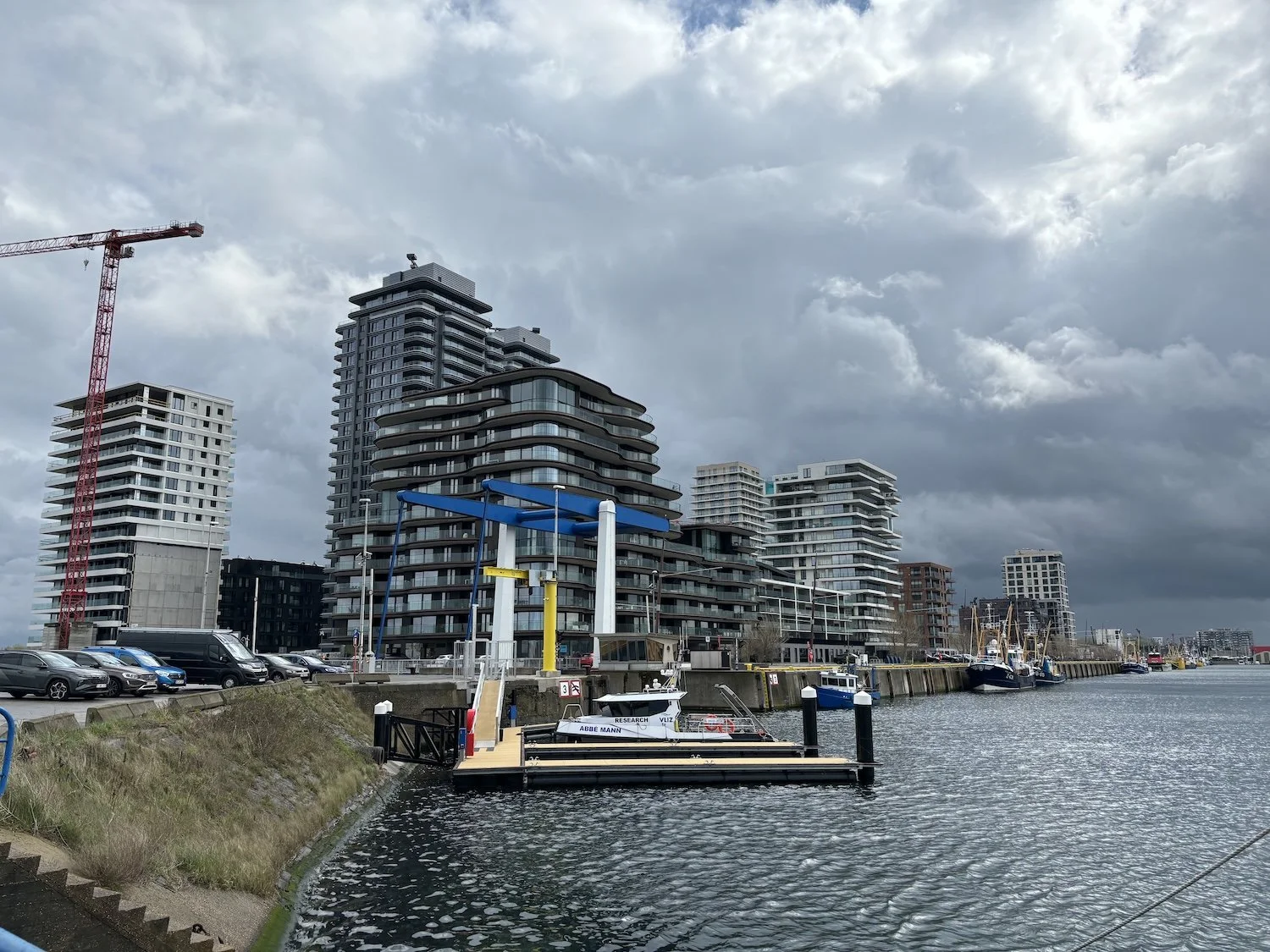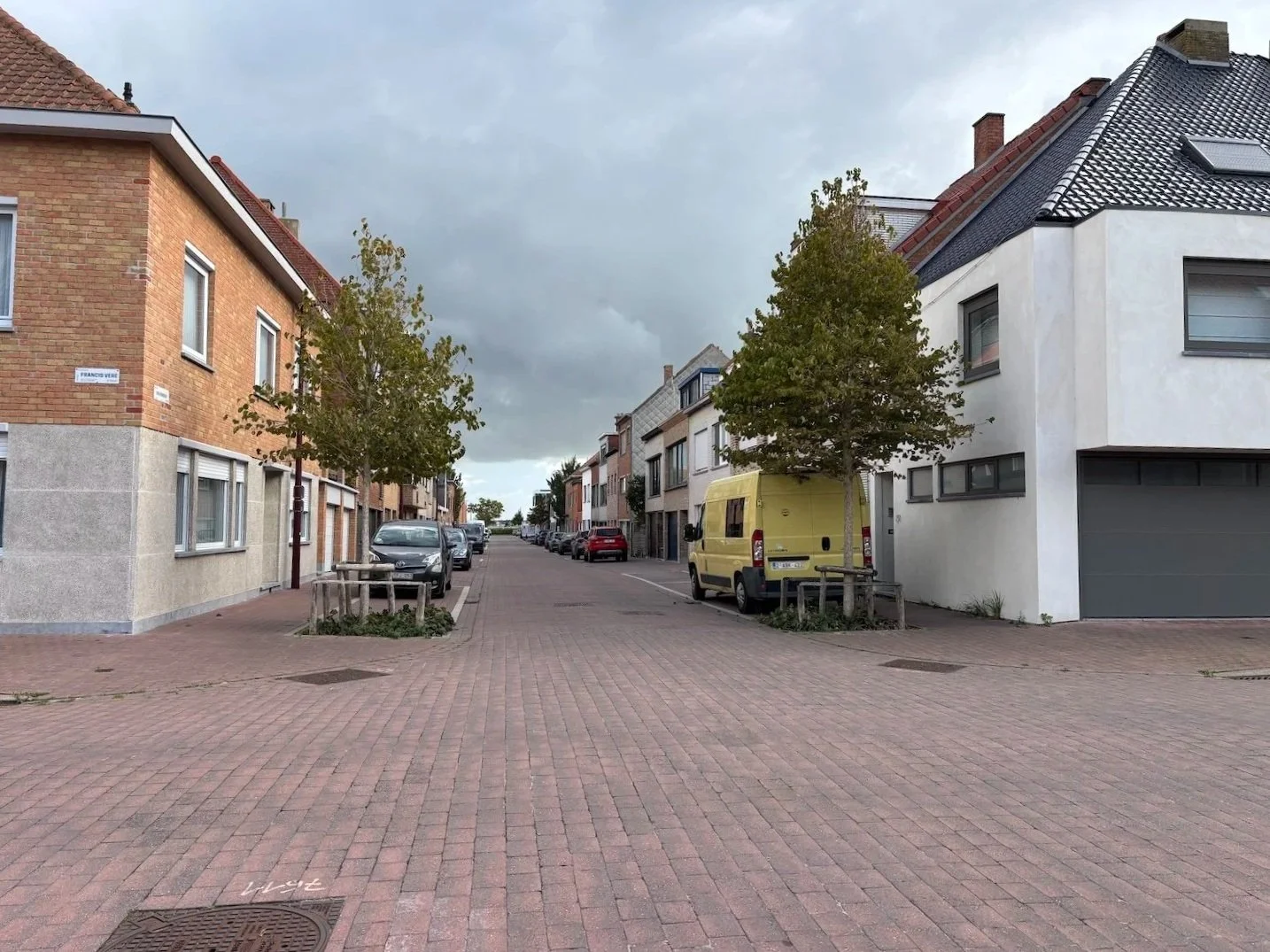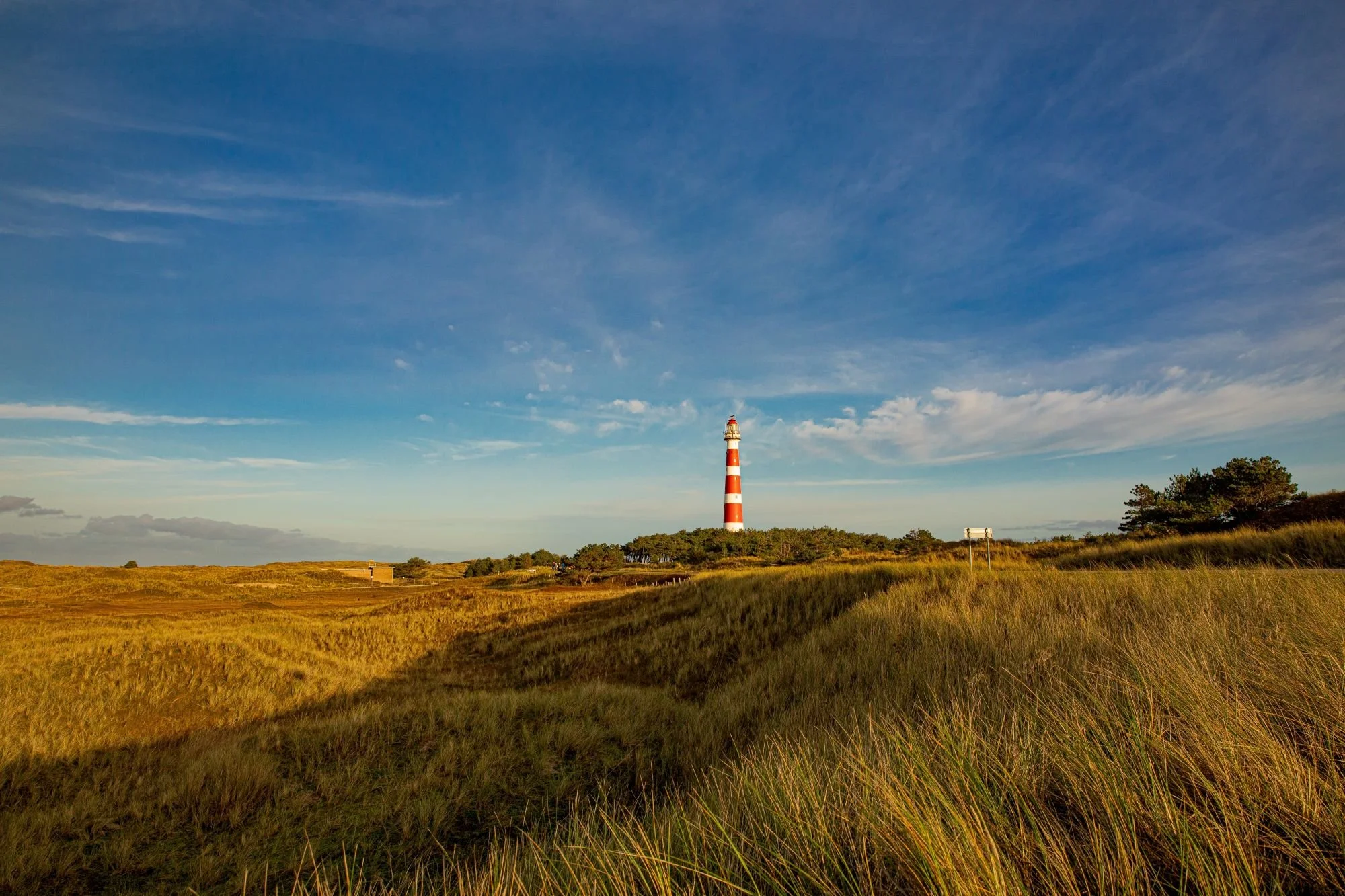
Ostend
Demonstration pilot
With over 70,000 residents, Ostend is the largest city on the Belgian coast. The city has a significant ageing population and welcomes approximately 3 million tourists a year, tripling Ostend’s population in the summer months.
The Ostend Climate Adaptation Lab is based in Vuurtorenwijk (translation: the lighthouse neighbourhood), an area characterised by diverse structures and spatial morphology, as well as a mix of functions. The district’s residential areas feature a variety of morphologies, tanging from densely-built terraced houses to suburban houses and high rise buildings. The business zones and a part of the port of zones in the Vuurtorenwijk have a completely different urban structure to the residential areas. Furthermore, the neighbourhood contains important recreational and natural areas. These include the Spuikom, a water basin, which currently serves a primarily recreational function, and a dune area of significant natural and heritage value.
These different functions, with different aims and needs, create competing priorities that can complicate the implementation of climate adaptation measures. While competing priorities may pose challenges when implementing adaptation measures, the Ostend Climate Adaptation Lab hopes to reduce the vulnerability of the city’s population by implementing both technical and nature-based solutions to improve water retention in the area and relieve heat stress.
Ostend Climate Adaptation Lab at a glance
Landscape
Climate challenges
Potential solutions and tools
Sectors involved
Urban waterfronts
Sea level rise, drought and extreme heat, flooding
Infiltration strategies, technical solutions, nature-based solutions
Housing, tourism
Climate challenges facing Ostend
Like many coastal cities in Europe, Ostend is facing increasing risks from:
Sea level rise
Drought and extreme heat
Flood risk
These climate risks not only cause problems for Ostend’s natural areas, but also cause significant harm for the city’s residents and its economy.
What are the potential climate adaptation solutions?
Various climate adaptation solutions will be tested and implemented in the Ostend Climate Adaptation Lab, depending on the location, morphology and soil characteristics of the area within the neighbourhood.
The Ostend Climate Adaptation Lab is testing and implementing a methodology for creating a neighbourhood structure plan based on spatial modelling. This plan provides a vision for transforming the Vuurtorenwijk into a climate resilient and regenerative district, tailored to it’s local conditions. The sandy soils in the northern part of the district, for example, lend themselves to solutions for infiltration and increasing the sponge effect, with opportunities to implement solutions on both private and public land. In the south of the neighbourhood, mainly consisting of workers’ housing, the clay soils and limited space means a mixture of technical and nature-based solutions are needed to improve the soil’s infiltration capacity and also relieve heat stress for residents.
The increasing population density and the need for more space for economic activity in densely built neighbourhood, combined with climate-related challenges such as water retention, call for spatial optimisation. Therefore, the Lab places particular emphasis on raising awareness and building public support for climate adaptation measures. The activities of the Ostend Climate Adaptation Lab primarily involve the residential and business sectors, reflecting the city’s social and economic context.
Partners
Further reading
Related Climate Adaptation Labs
The Ostend Climate Adaptation Lab is working closely with the Flanders Climate Adaptation Lab to upscale climate adaptation solutions in Belgium. The Lab is also exchaning knowledge with the Flanders and North Holland Labs, where similar challenges are being faced.








